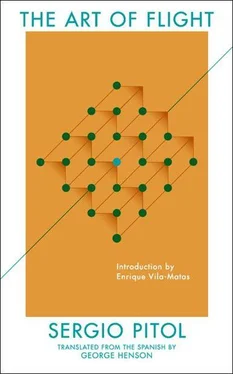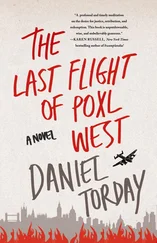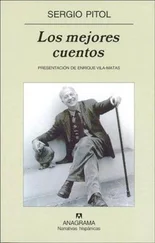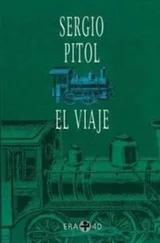Every time I reread La segunda casaca (The Second Turncoat), that remarkable national episode by Benito Pérez Galdós, I’m moved by a statement made by the protagonist Salvador Monsalud:
I have always believed the same thing, and I very much fear, even after victory, that things in my country will continue to seem to me as bad as before. This is such a horrible mixture of ignorance, bad faith, corruption, and weakness that I suspect the evil is too deep for revolutionaries to repair. Among these, one sees everything: there are men of much merit, good heads, and hearts of gold; but there are also unruly ones who seek only noise and chaos; not to mention those filled with good faith yet lacking in intelligence and common sense. I have observed this group they are caught up in, unable to unite the greatness of ideas with the pettiness of their ambitions; I have felt a certain fear for principle; but after pondering it, I have concluded by affirming that the evils that revolution may bring will never be as great as those as absolutism. And if they are — he continued contemptuously — they well deserve it. If all this is to continue to bear the name of nation, everything must be turned upside down, that common sense which has been offended be avenged, drawing and quartering such ridiculous idolatry, such foolishness, and barbarism erected in living institutions; there must be a complete renovation of the patria, no vestiges of the past should remain, and everything must be plowed under with noise, crushing the foolish who insist on carrying an outmoded artifice on their shoulders. And this must be done quickly, violently, because if it is not done this way it will never be done… Here the doors of tyranny must be torn down with ax blows in order to destroy them, because if we open them with their key, they will be left standing and will close again.
This is what Salvador Monsalud proclaimed, the unblemished hero, the character whom Galdós treated with the greatest sympathy, as if he wanted to share the same exploits with him. But, unlike Monsalud, we did not think it was necessary to change everything, to turn everything upside down, rather simply to ensure that the Constitution be followed, that our legislative practice be real, and not a mere pretext that gives rise to oratorical pirouettes and flourishes; that the rights of the citizens be respected, that the corrupt leaders and uncivil rulers disappear, those scourges capable of tarnishing any system, and through momentary disharmony reach social harmony. After the repression began we no longer thought the same; we wished, like Monsalud, for everything to be uprooted so that nothing would ever be the same, and one of the options that we envisioned was socialism, whether democratic socialism like Sweden or Finland, or real socialism like that of Eastern Europe, or even a socialism sui generis like that of China. It was the period of the “Hundred Flowers,” not of the Cultural Revolution; I had just read a couple of very suggestive books: The Long March , by Simone de Beauvoir, and Into China , by the magnificent Claude Roy; both writers portrayed that world as a utopia in progress; an ideal vision built with real elements. In other words, the radical Monsalud, at first a purely literary character, ended up being our contemporary. We were tied to him by a common desire for justice, cleanliness, and decency. We also shared with him his doubts about what could happen after the change, if in fact there was one, and at the same time we were captivated by his adventurous life, not at all stifled by his political activity. We were anti-dogmatic by nature. E.M. Forster’s book Two Cheers for Democracy became my spiritual guide; since then, I always have it by my side.
I can say with confidence that during those three years—1958, 1959, 1960—our lives did not take the same course as those of the positive characters in Soviet literature and film. I would dare to believe that the opposite was true, and the proximity of some closed-minded, rigid, and dogmatic revolutionaries was the best antidote. Our ability to live happily remained intact, even if the spaces had become more limited and enclosed; perhaps that very thing made them more intense. Friendship in those days became almost fraternity. Carlos and I continued to observe the tireless cycle of the human comedy: its glories, its agonies, its tricks, and its tragedies, but also its foolishness, its pettiness, its infinite capacity to embody the grotesque, the pretentious, and the seedy. We did everything possible so that the turmoil in the streets did not overwhelm our readings, and that in the event it did influence our conversations — it was impossible, not to mention undesirable, to avoid it — it did not excessively dominate or weaken them. We continued to go to the same cineclubs , cafés, theaters; we saw each other with the same or greater frequency, we discussed every imaginable subject, but literature especially.
Exhausted by some personal conflicts, anxious because of a fallow period that I had begun to associate with the political maelstrom, I decided to take a break and leave the country for a time; I thought about a trip to New York to recharge my batteries, or to Havana to witness firsthand that new revolutionary reality that certain well-known intellectuals such as Jean-Paul Sartre or Michel Leiris were celebrating, but I ended up traveling to Europe. I sold what I had — books and paintings — which allowed me to spend a few weeks in London, a few days in Paris and Geneva, and an extended period of time in Rome.
While I was away many things happened.
On my return to Mexico, I find a modified reality. The climate of official antagonism has increased, moving into other sectors. Financiers have not forgiven López Mateos for having defined his government as leftist, even if it was within the Constitution. The nationalization of industries, especially those of light and power, creates in these circles a feeling close to panic. China has been allowed to hold an exhibition in Mexico on the advances achieved by the Revolution. What exasperates them above all is this unprecedented foreign policy during the presidential sexennial. More than one hundred thousand people protest in front of the Palacio Nacional against free textbooks, which they consider an assault on the religious sensibilities of the nation. Fliers are circulated revealing that the president’s wife is a Protestant. Overnight, notices appear on the doors and windows of tens of thousands of houses that read: “In this house we are Roman Catholics, and do not accept either Protestant or Communist propaganda.”
Moreover, a new and anti-dogmatic political thought has taken root. A group of intellectuals — made up of Víctor Flores Olea, Carlos Fuentes, Jaime García Terrés, Enrique González Pedrero, Francisco López Cámara, and Luis Villoro — founded a dissident publication: El Espectador , which carried a significant weight of opinion, especially among intellectuals.
At the same time, first imperceptibly then with an irresistible rhythm, a joyful spirit of carnival, of libertarian revelry, began to spread. Mexico is becoming a fiesta. My neighborhood, Juárez, is becoming the city’s Zona Rosa, teeming with galleries, restaurants, and cafés where everyone meets. I’ve returned with the intention of staying only a brief time and of picking up some translations to do in Italy. My desire to leave, however, wanes with each passing day. Monsiváis and José Emilio have become important cultural figures in the city. Their talent and their immense capacity to work have opened many doors for them, both at the University and in cultural supplements and magazines, which at that time are the only venues available to writers. Carlos’s program Cine y Crítica, which is broadcast by Radio Universidad, has become very popular, thanks in no small part to his cultural breadth and polemical character, but most of all to his humor, that never-ending rainstorm that falls on the desert of solemnity that characterizes our medium.
Читать дальше












